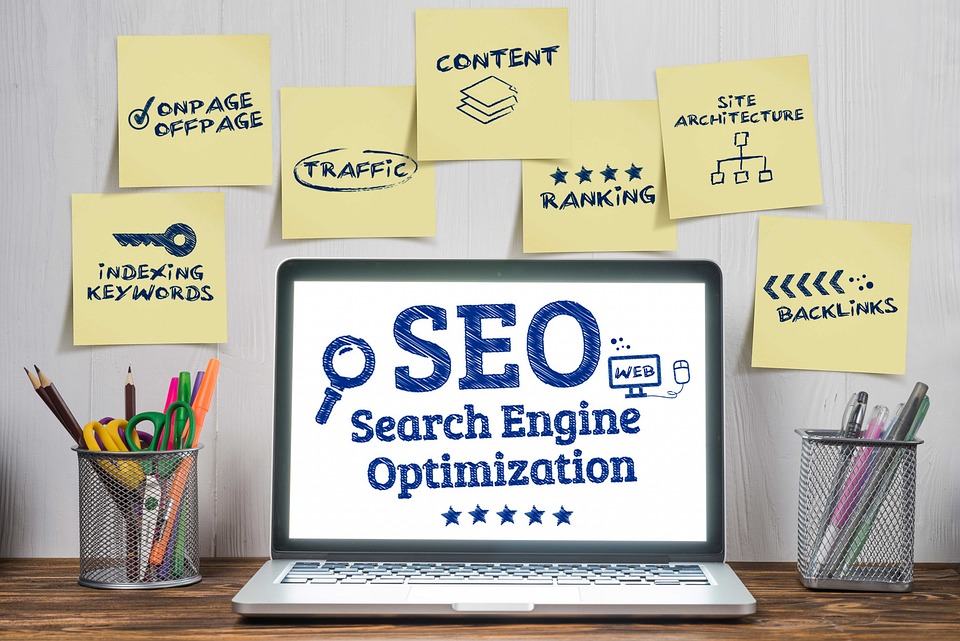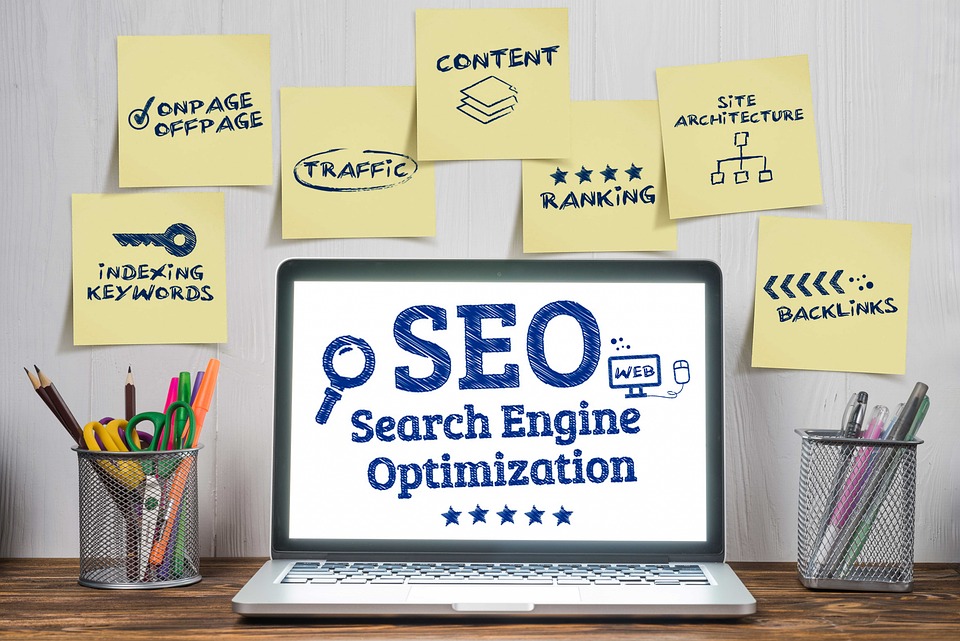
Local SEO is one of the practices you want to consider when working on an SEO strategy. It entails using organic SEO tactics but tailoring them to local search engine results.
Local SEO services are more beneficial to home service businesses. With these services in place, their content and advertisements may efficiently target customers in the geographic region in which they operate. However, since the level of competition and Google’s attempts to provide the best results for its users, online customer reviews play a role.
Google reviews influence your business’s ranking as well as its growth. It is difficult to know where to focus your efforts as a local business owner. So, how can you use reviews to improve your SEO? We’ll look at leveraging customer reviews to improve your local SEO ranking in this post.
What is local SEO, and why is it important?
Local SEO is the practice that focuses on improving your local online presence to attract more business from relevant local queries. The local search results change based on the location of the person searching. Also, there are two types of local SEO factors that matter: 3-Pack and standard organic results.
The Google 3-Pack is how Google displays the top three local SERP results. It makes the search relevant to the location where the user entered the query. It includes customer reviews, photos, and a map showing your location.
For example, if you search for gyms in New York, you will see that the 3-Pack dominates the top of the search results. Below the 3-Pack is your standard organic search results.
The 3-pack accounts for 33% of all clicks on the search results page. On the other hand, ranking in organic search results is also significant because the top results attract an additional 40% of all clicks.
Local SEO can boost your location’s visibility and presence to attract more customers from local searches. Also, it helps you increase search traffic, competitive research, raise brand awareness, and dominate your market. It can help you save money on advertising because you won’t have to keep investing to reach the top.
In other words, local SEO has the potential to boost your local online business drastically. You will see an increase in sales if you have a Google My Business account and other local SEO strategies to assist more local clients in finding your business.
How can you use customer reviews for local SEO?
Google, in standard search results, does not show much detail. It displays meta descriptions, titles, and URLs. Unlike in local search results, Google reviews and ratings will be visible on the 3-Pack. So, we can confidently assert that reviews are a crucial ranking factor.
Also, Google is constantly working to provide its users with the most up-to-date reputation and credibility data. Ratings and positive reviews assist Google with telling between good and not-so-good businesses and which results it should emphasize for local searches. Consumers can use reviews to sort out the good from the bad and find the best local business for their needs.
Google employs three key categories: relevance, distance, and prominence to describe local ranking factors. Review data comes under the prominence category. Search engines such as Google will consider your review profile, including quality and quantity.
The good news is that executing a well-planned local SEO strategy will enhance both your map pack and organic rankings. So, if you want to improve your ranking, here are a few things you should do.
1. Reviews affect your Google ranking
It’s no wonder that Google reviews and SEO are tightly intertwined since they have a similar goal. They communicate trustworthiness and authority. The higher your star rating, the more credibility your business enjoys. In addition, if your business has a lot of reviews, it means that more people have tried your products or visited your store, which in turn could convince others to do the same.
Google customer reviews send critical signals to search engines indicating that your business possesses the reliability, credibility, and authority that the algorithm seeks. Consumers, on the other hand, love reviews and will often use them to confirm their decision to do business with you or not.
Reviews are an integral part of the business and influence search positions for local ranks and overall results. Google analyzes all company reviews and ratings to guarantee that online customers find the best services and products when using Google search. As a result, reviews will have an impact on your ranking.
As noted by Google:
“Google review count and score are factored into local search ranking: more reviews and positive ratings will probably improve a business’s local ranking.”
So, create a method for asking your customers to give reviews whenever possible. Also, ensure that customers have a great experience to encourage them to post a review.
One way of getting reviews from your customers is through email marketing. You can set up your email marketing software to send an email reminding your customers to visit your website and leave a review a few days after they visit your business. If your customers are happy with your service, they will be more likely to leave a good review and help you improve your Google ranking.
2. Use structured data to your advantage
In recent years, the scheme has proven itself among SEO experts as a legitimate optimization strategy to get the most crucial answer boxes and rich snippets at the zero position of the search results.
Structured data, often known as schema markup, is data or code added to the HTML of a web page. It allows you to provide a more comprehensive picture of your content to search engines. In other words, it tells the search engines what specific information your site contains and where it is located.
So, when people type in search queries, search engines will deliver accurate and relevant results. It enables search engines to give you some benefits, such as higher ranking and showing your material as rich snippets on SERP.
3. Get backlinks from local authority websites
Obtaining a range of reviews from websites that are locally related to your business helps you gain authority, proximity, relevance, and prominence, all crucial elements in local rank. The more quality links and mentions of your business that search engines find on reputable sites, the more likely Google will include your company as a reliable resource in their results.
Creating localized content and generating quality local links have a tremendous influence. It makes sense to contact the most well-known local guides and request that they review your business. Request an honest review of your business from a local authority blogger or influencer. You might also inquire about writing a guest article for a local website and link back to your own site.
Aside from that, to increase your presence, you may build trustworthy relationships in several ways, like supporting local nonprofits and events or joining a chamber of commerce. You may also use conventional backlinks to improve your organic ranking.
You can build backlinks through guest content that answer user questions or address common pain points. Backlinking can bring hundreds of new clients to your business in the local area.
4. Create content based on local news stories or events
There’s nothing quite like authoring content that speaks or relates directly to a local issue to grab your local customers’ attention.
Some strategies include:
- Writing blog posts around local news stories, activities, or events
- Creating videos about local charities or causes that your business supports
- Setting up location-specific webpages on your website with high-quality local content if you serve different parts of a region
Let’s say you’re a local real estate business. You can create different pages, one for each of your locations, where you can feature hyperlocal content around news events or changes in the local real-estate market. This strategy could also help you get ranked for each specific location.
5. Optimize your website for mobile
A 2018 Stone Temple study that looked at 2017’s mobile vs. desktop trends found that the shift to mobile is occurring faster than expected. Mobile visits to websites grew from 57% in 2016 to 63% in 2017, and the overall visits to websites from desktop shrunk from 43% in 2016 to just 37% in 2017.
Another 2017 study from Acquisio determined that traffic from local searches can be especially lucrative, with a remarkable 75% of all mobile searches that exhibit local intent actually producing in-store, offline visits within 24 hours.
This confirms that you have to optimize your website for mobile to be a player in local SEO (and, really, for good SEO period).
Here are some tips to achieve this:
- Ensure your website loads quickly (no more than three seconds)
- Use bigger fonts that are easy to read
- Use images and copy sparingly, conveying only the information you need (no room for filler on a mobile screen!)
- Ensure intuitive UI for great UX
6. Hone in on local keywords
Your keywords should be relevant to local customers. It only makes sense, doesn’t it?
Google’s own Keyword Planner lets you filter keyword searches based on location so you get an idea of the popular search terms for a given region. This lets you create a list of locally relevant keywords to target. Once you have them, they should make appearances in your site’s meta content, copy, and URLs.
Also, include mentions of region-specific landmarks and hotspots in your content. For instance, if your local restaurant serves dinner in downtown Seattle, include references to “dining by the Space Needle” or “just steps from the Space Needle” on your site.
7. Use location pages or a location-specific “About Us” page
Location pages are a must if your business has more than one location in an area. These pages need to provide the following, at a minimum:
- Store hours
- Name, address, and phone number
- Individualized descriptions
- Testimonials
- Promotions
- Parking availability
- Google Maps attached to each location page
Take care when you have multiple locations, because you need to create unique content for each page.
If you only have one location, creating an “About Us” page that focuses on local, relevant information is essential. For example, if you have a florist shop, your “About Us” page is the perfect spot to mention your shop’s involvement in supplying the flowers for any parades in your town or city.
8. Take advantage of online business directories
Online business directories are websites like Yelp, Foursquare, MapQuest, and YellowPages, just to name a few. There are many more.
Not only will getting your business name, address, and phone number into these directories help visibility, but it’ll also boost your local SEO.
Your company listing should include the following basics:
- Business name (creative business name ideas here!)
- Address and phone number
- A backlink to your website
- A thorough description of your business
These should be consistent across all directories.
9. Focus on link signals (Get High-Quality Backlinks)
According to Moz’s 2017 Local Search Ranking Factors study, link signals are the first- and second-most important factors for local pack (or snack pack) results and for localized organic results, respectively. Link signals are backlinks pointing to your site.
It’s vital to get links to boost your local SEO, but their quality is important.
Here are some tips on getting high-quality backlinks:
- Create high-quality content on your site so others want to link to your content
- Guest blog on reputable sites with a high domain authority
- Engage with local influencers on social media or by email to get them to link back to you
10. Create a dedicated webpage for each product/service you offer
While it can be tempting to just lump all of your products or services together in one big page, resist doing so. Instead, dedicate one page to each unique product or service you offer.
Your local SEO juice isn’t as powerful if you lump everything into one page because search engines tend not to see your brand as an authority in one specific area. This lowers your ranking possibilities.
If you’re a business without different products or services, but have various locations, simply utilize location-based copy for each page. For instance, “dental marketing” will become “New York dental marketing” or “Buffalo dental marketing.”
Local SEO: More Important Than Ever
SEO changes quite rapidly. You never know when Google will introduce new features on its SERPs for local searches, but you can count on these changes coming. That’s why it’s essential to always stay on top of local SEO. By implementing these 10 actionable items, you will ensure that your business doesn’t just take advantage of lucrative local searches but also has a solid foundation when new SEO features are introduced. And if you don’t have the bandwidth to make these adjustments, you may want to try a local seo audit, or look into a small business SEO service provider.





